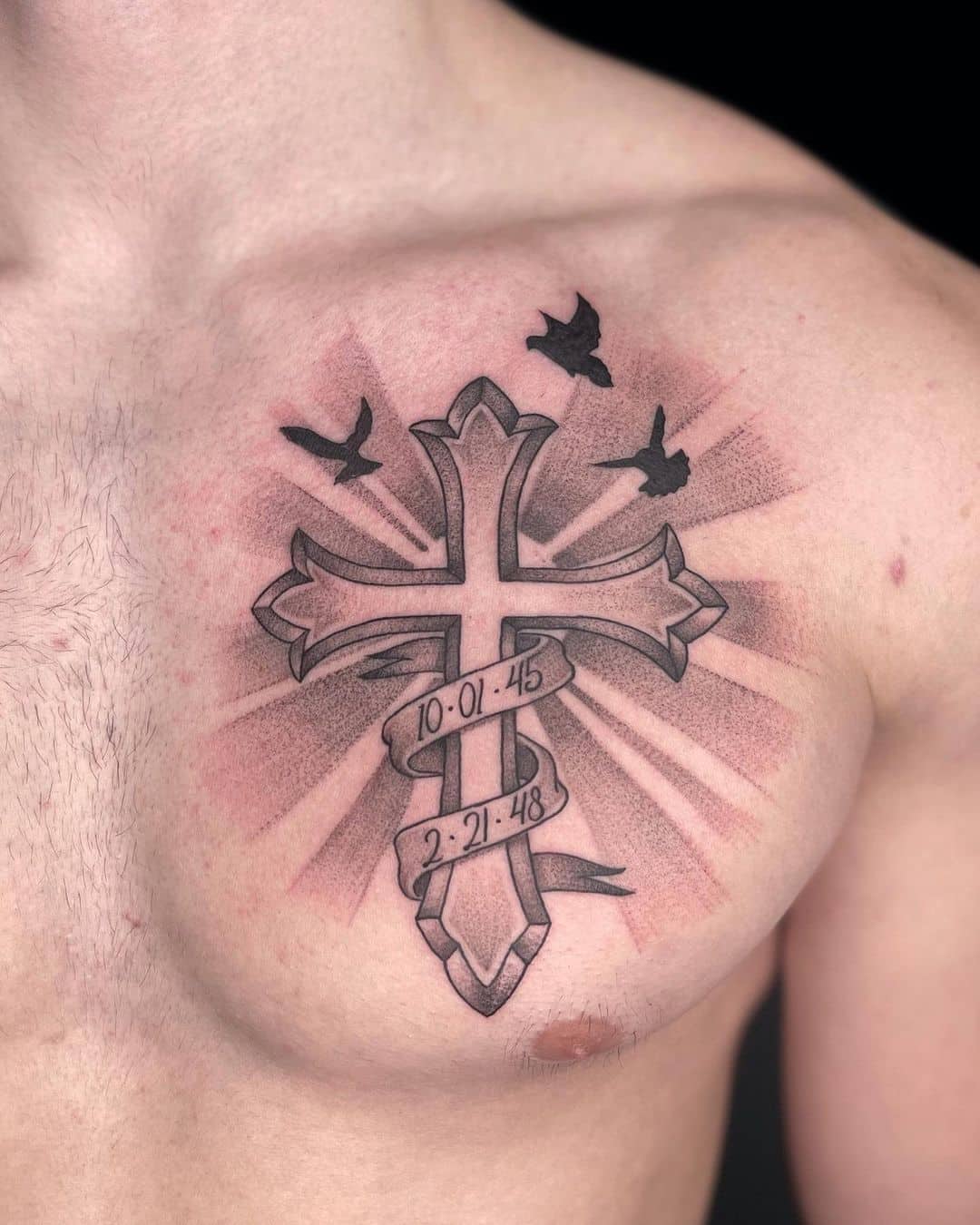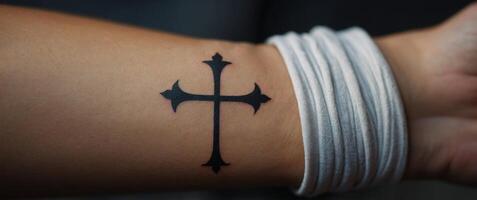Tattoos have long served as a powerful form of self-expression, rebellion, and identity. But perhaps their most enduring role lies in the realm of spirituality. Religious tattoos—whether worn as symbols of devotion, protection, or penance—are deeply rooted in human history. From biblical scriptures etched into the skin to elaborate depictions of Jesus Christ, these tattoos reveal a story of faith inked across generations.
In this article, we’ll explore the historical origins and cultural significance of religious tattoos, particularly Christian tattoos, and examine how they continue to inspire believers today.
Ancient Roots: Tattoos and Early Religion
The relationship between tattoos and religion dates back thousands of years. In ancient Egypt, tattoos were often symbolic of status, spiritual power, or connection to the divine. Mummified remains have been found with religious markings—proof that sacred ink has been with us for millennia.
Similarly, in ancient Polynesian and tribal cultures, tattoos often represented religious beliefs, tribal gods, or spiritual strength. These markings were not merely decorative; they were sacred, often believed to offer protection or divine favor.
In early Christianity, however, the stance on tattoos was more complex. While early Christians under Roman persecution sometimes tattooed symbols like the cross or ichthys (fish) as marks of devotion, these practices later faced scrutiny.
Christian Tattoos in the Medieval and Crusader Era
During the Middle Ages and Crusades, Christian tattoos experienced a revival. Pilgrims journeying to the Holy Land would often receive a tattoo of a cross or religious symbol in Jerusalem as proof of their pilgrimage.
One of the most famous examples is the Razzouk Tattoo shop in Jerusalem, operated by the same Coptic Christian family for over 700 years. Pilgrims from around the world would visit their studio to receive a traditional religious tattoo—usually a simple cross or a pattern featuring “IHS,” the monogram for Jesus.
This period also marked the beginning of Christian tattoos for men and women as statements of spiritual commitment rather than rebellion.
The Bible and the Tattoo Debate
Despite the deep roots of religious tattoos, many Christians still ask: What does the Bible say about tattoos? or Is getting a tattoo a sin?
The key verse often cited is Leviticus 19:28:
“Do not cut your bodies for the dead or put tattoo marks on yourselves. I am the Lord.”
However, biblical scholars argue that this commandment was given in a very specific cultural context—warning the Israelites not to adopt pagan mourning rituals. It doesn’t directly condemn modern tattoos, especially those done with faith-based intentions.
In fact, many modern Christians opt for bible verse tattoos as personal reminders of scripture, such as:
- Philippians 4:13 (“I can do all things through Christ…”)
- Psalm 23 (“The Lord is my shepherd…”)
- John 3:16
So, can Christians get tattoos? Today, many pastors and theologians agree: if the tattoo honors God and is done with a sincere heart, it can be a form of worship.
The Rise of Modern Religious Tattoos
In recent decades, there’s been a dramatic rise in the popularity of religious tattoos—especially among younger Christians. With more people embracing tattoos as art and identity, it’s no surprise that expressions of faith have found their way into tattoo culture.
Some of the most popular modern Christian tattoo ideas include:
- Jesus tattoos: Portraits of Jesus, Sacred Heart, or the Crucifixion
- Cross tattoos: A universal symbol of Christian faith

- Biblical tattoos: Full scripture verses, often on arms, ribs, or back

- Tiny religious tattoos: Minimalist crosses or ichthys symbols
- Angel tattoos: Representing protection, guidance, or loved ones in heaven
These designs aren't limited to men. There’s a wide array of Christian tattoos for women, featuring delicate floral crosses, doves, or subtle text in cursive. Meanwhile, Christian tattoos for men often feature bolder imagery like Jesus Christ tattoos, armor of God motifs, or roaring lions symbolizing strength and spiritual warfare.
Religious Tattoo Designs Around the World
While Christian tattoos dominate in the West, other religions have also inspired countless tattoo designs:
- Catholic tattoos: Often more ornate, featuring saints, rosaries, or Our Lady of Guadalupe.
- Buddhist tattoos: Mandalas, Sanskrit scriptures, or images of the Buddha.
- Hindu tattoos: Deities like Shiva or Ganesh, sacred mantras like “Om.”
- Islamic tattoos: While tattoos are traditionally discouraged in Islam, some cultural variations include calligraphy or symbolic motifs (though not religious texts).
Even in cultures where tattooing was once taboo, attitudes are changing. Tattoos are increasingly seen as personal, spiritual expressions, rather than rebellious acts.
Meaningful Religious Tattoo Ideas
If you’re considering a religious tattoo, here are a few ideas to inspire you:
- Jesus tattoo design: A crowned Jesus with "King of Kings" inscribed beneath.
- Bible verse tattoos: Romans 8:38–39 or Isaiah 41:10 wrapped around a cross.
- Small Christian tattoos: A minimalist fish or anchor on the wrist.
- Biblical tattoo ideas: A scene from the Garden of Gethsemane or Noah’s Ark.
- Christian tattoos for ladies: A dove with olive branch, paired with a verse like Psalm 46:5.
- Male religious tattoos: Armor of God on the forearm, or a lion with Revelation 5:5.
Each of these designs can be personalized using modern tools like fine-line tattoo needles or grayscale shading with high-quality tattoo ink.
Choosing the Right Tattoo Artist and Equipment
For a tattoo so deeply personal and spiritual, choosing the right artist is crucial. Look for someone who has experience with religious tattoo designs, particularly fine-line or portrait work.
You’ll also want to make sure your artist uses high-quality tattoo machines, safe tattoo needles, and sterilized equipment. If you're a tattoo artist or apprentice yourself, starting with a professional-grade tattoo kit ensures safety and precision—especially for detailed biblical art.
✦ Pro Tip: If you're creating religious tattoos professionally, opt for a rotary tattoo machine with adjustable stroke length. It’s perfect for script, shading, and linework required in biblical tattoos.
The Tattoo as Testimony
For many believers, a religious tattoo is more than body art—it’s a testimony. It’s a declaration of faith, a conversation starter, and a symbol of spiritual identity.
Take the story of a woman who tattooed Isaiah 43:2 on her arm after surviving a car crash. Or a former addict who inked a crown of thorns on his wrist as a reminder of redemption. These tattoos are living stories—testimonies of God's presence in their lives.
Final Thoughts: What Does God Say About Tattoos?
While interpretations vary, the overwhelming message in the New Testament is one of the heart. God looks at our intentions, not our outward appearance. If your tattoo is born from faith, love, and truth, it can be a meaningful expression of worship.
“So whether you eat or drink or whatever you do, do it all for the glory of God.”
— 1 Corinthians 10:31
Whether it’s a small Christian tattoo or a full Jesus Christ backpiece, religious ink has the power to inspire, to remind, and to heal.









Share:
From Tribal Marks to Viral Memes: A History of Political Tattoos and the Case of Boebert
Chicano Tattoo Culture: From Street Art to Fine Art